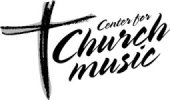Center For Church Music, Songs & Hymns

Browse Hymns:
Browse by:
We Invite You To Sing
To sing with us, 1) Click on the music thumbnail icon to view the sheet music (you don't have to read music!), and 2) Engage the audio file by clicking on the Real audio or Mp3 file.
Find Songs And Hymns
Facts:
- Lyricist: William C. Dix
Lyrics Date: 1866
Key: F
Theme: Jesus Christ, His ascension and reign
- Composer: Rowland H. Pritchard
Music Date: 1830
Tune Name: HYFRYDOL
Meter: 8.7.8.7.D.
Scripture: Revelation 19:1
Devotional:
Written for Ascension Day, this hymn was originally entitled "Redemption by the Precious Blood". It was inspired by the "Song to Christ" found in Revelation 5:9:
…You were slain and have redeemed us to God by your blood out of every tribe and tongue and people and nation…
Though it may seem odd, the death of Jesus (coupled with His resurrection) was the most important aspect of his life. Many biographers make only brief mention of the death of th...
See More
Written for Ascension Day, this hymn was originally entitled "Redemption by the Precious Blood". It was inspired by the "Song to Christ" found in Revelation 5:9:
Though it may seem odd, the death of Jesus (coupled with His resurrection) was the most important aspect of his life. Many biographers make only brief mention of the death of their subject, but the Gospel writers make the events of Jesus' last days—His trial, torture and crucifixion—a major part of their account.
And for His followers, Christians, Jesus gave them a "supper" that they would be sure to remember His death:
This is my body which is for you…This cup is the new covenant in My blood which is poured out for many…
What is the reason for this emphasis on Jesus’ death? Let an illustration from James Denney answer that question:
Suppose two men are standing on a pier that juts out into the ocean. Presently one to his friend, ‘I love you very much and to prove it I am going to jump off this pier and drown myself. ‘ He does so and next day, the papers tell the story of this strange, senseless suicide.
Let us imagine, however, that these two men are there again and one inadvertently trips and falls into the water. His friend, though a poor swimmer, plunges to his rescue and manages to push him to a ladder of safety. But in saving his friend, he himself sinks and loses his life. Next day, the papers will tell the story of a hero who gave his life to save his friend.
The Bible says that The wages of sin (that is, yours and mine) is death--a spiritual death that separates a person from God. But the Bible also says that God made Him (Jesus) who had no sin to be sin for us. That is spiritual life—forever!
Believe it: Rejoice in it: Live gratefully because of it!
See Less
Hymn Story:
William Dix wrote "Alleluia! Sing to Jesus" as a communion hymn for Ascension Sunday. This hymn was originally called "Redemption through the Precious Blood" and was inspired by Revelation 5:9, "And they sang a new song, saying, You are worthy . . . for you were slain, and have redeemed us to God by your blood." Our hymns proclaims "His the triumph, His the victory alone." "Jesus . . . hath redeemed us by His blood."
"Though the cloud from sight received Him," sings of Christ's asce...
See More
William Dix wrote "Alleluia! Sing to Jesus" as a communion hymn for Ascension Sunday. This hymn was originally called "Redemption through the Precious Blood" and was inspired by Revelation 5:9, "And they sang a new song, saying, You are worthy . . . for you were slain, and have redeemed us to God by your blood." Our hymns proclaims "His the triumph, His the victory alone." "Jesus . . . hath redeemed us by His blood."
"Though the cloud from sight received Him," sings of Christ's ascension. Even as He assured us he would not leave us as orphans, this hymn also reminds us of His faithful promise, "I am with you evermore."
This hymn, although usually presented with three verses, has a fourth verse, and also originally repeated the first verse at the end, giving it five verses total. It was first published by Dix in Altar Songs, Verses on the Holy Eucharist, 1867. A year later it was included in the Appendix of Hymns Ancient and Modern, with a tune specifically written for it by Samuel Sebastian Wesley, called Alleluia. This tune is still preferred by Hymns Ancient and Modern, but it is seldom sung today. The 1909 edition had a different tune, Adoration, by B. Luard Selby, but this tune is not found in any modern hymnal. The tune to which it is most commonly sung is HYFRYDOL, written by Rowland H. Prichard.


